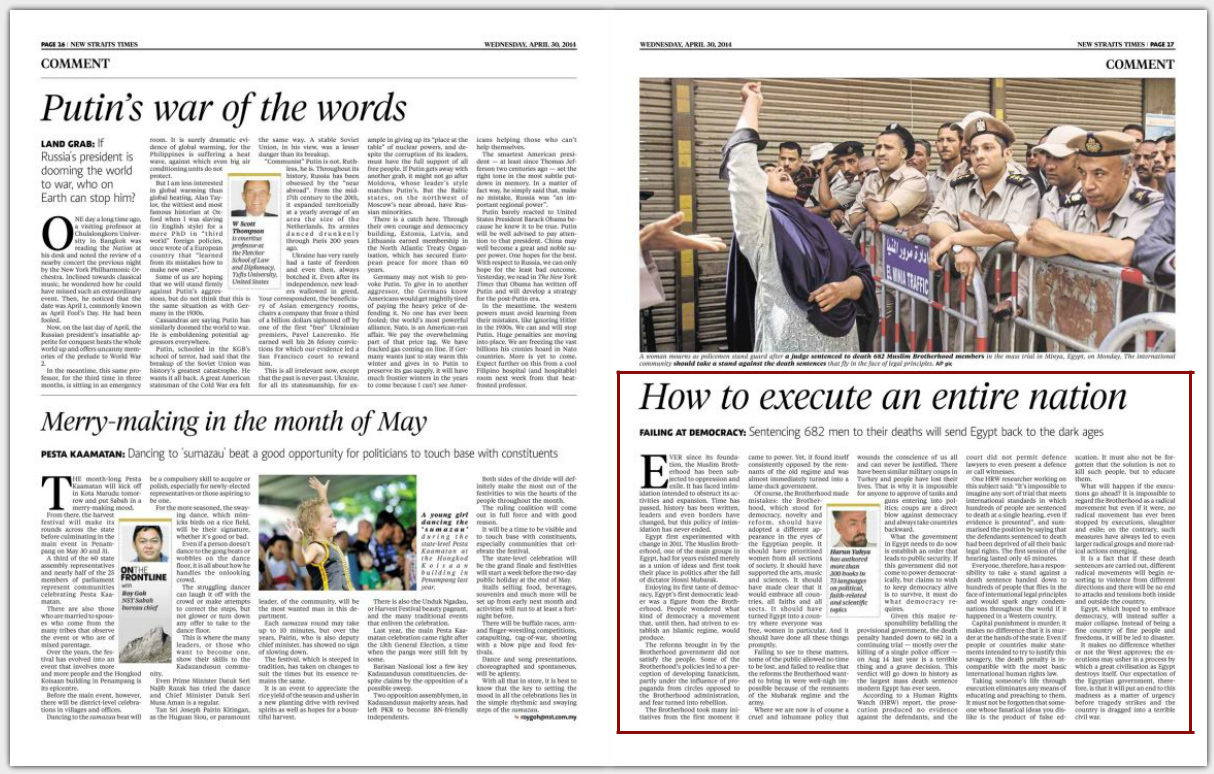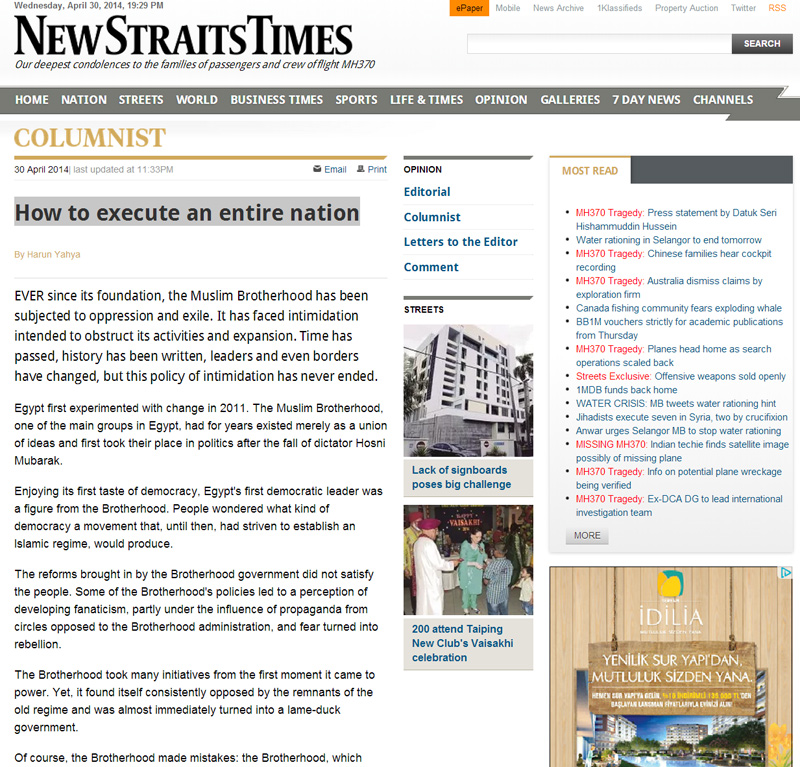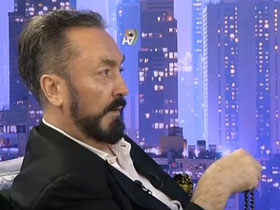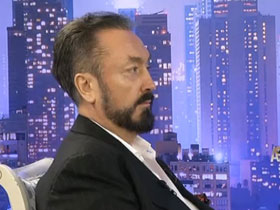Bigotry: The Dark Danger
How to execute an entire nation


EVER since its foundation, the Muslim Brotherhood has been subjected to oppression and exile. It has faced intimidation intended to obstruct its activities and expansion. Time has passed, history has been written, leaders and even borders have changed, but this policy of intimidation has never ended.
Egypt first experimented with change in 2011. The Muslim Brotherhood, one of the main groups in Egypt, had for years existed merely as a union of ideas and first took their place in politics after the fall of dictator Hosni Mubarak.
Enjoying its first taste of democracy, Egypt's first democratic leader was a figure from the Brotherhood. People wondered what kind of democracy a movement that, until then, had striven to establish an Islamic regime, would produce.
The reforms brought in by the Brotherhood government did not satisfy the people. Some of the Brotherhood's policies led to a perception of developing fanaticism, partly under the influence of propaganda from circles opposed to the Brotherhood administration, and fear turned into rebellion.
The Brotherhood took many initiatives from the first moment it came to power. Yet, it found itself consistently opposed by the remnants of the old regime and was almost immediately turned into a lame-duck government.
Of course, the Brotherhood made mistakes: the Brotherhood, which stood for democracy, novelty and reform, should have adopted a different appearance in the eyes of the Egyptian people. It should have prioritised women from all sections of society. It should have supported the arts, music and sciences. It should have made clear that it would embrace all countries, all faiths and all sects. It should have turned Egypt into a country where everyone was free, women in particular. And it should have done all these things promptly.
Failing to see to these matters, some of the public allowed no time to be lost, and failed to realise that the reforms the Brotherhood wanted to bring in were well-nigh impossible because of the remnants of the Mubarak regime and the army.
Where we are now is of course a cruel and inhumane policy that wounds the conscience of us all and can never be justified. There have been similar military coups in Turkey and people have lost their lives. That is why it is impossible for anyone to approve of tanks and guns entering into politics; coups are a direct blow against democracy and always take countries backward.
What the government in Egypt needs to do now is establish an order that leads to public security. If this government did not come to power democratically, but claims to wish to keep democracy alive is to survive, it must do what democracy requires.
Given this major responsibility befalling the provisional government, the death penalty handed down to 682 in a continuing trial -- mostly over the killing of a single police officer -- on Aug 14 last year is a terrible thing and a grave decision. This verdict will go down in history as the largest mass death sentence modern Egypt has ever seen.
According to a Human Rights Watch (HRW) report, the prosecution produced no evidence against the defendants, and the court did not permit defence lawyers to even present a defence or call witnesses.
One HRW researcher working on this subject said: "It's impossible to imagine any sort of trial that meets international standards in which hundreds of people are sentenced to death at a single hearing, even if evidence is presented", and summarised the position by saying that the defendants sentenced to death had been deprived of all their basic legal rights. The first session of the hearing lasted only 45 minutes.
Everyone, therefore, has a responsibility to take a stand against a death sentence handed down to hundreds of people that flies in the face of international legal principles and would spark angry condemnations throughout the world if it happened in a Western country.
Capital punishment is murder; it makes no difference that it is murder at the hands of the state. Even if people or countries make statements intended to try to justify this savagery, the death penalty is incompatible with the most basic international human rights law.
Taking someone's life through execution eliminates any means of educating and preaching to them. It must not be forgotten that someone whose fanatical ideas you dislike is the product of false education. It must also not be forgotten that the solution is not to kill such people, but to educate them.
What will happen if the executions go ahead? It is impossible to regard the Brotherhood as a radical movement but even if it were, no radical movement has ever been stopped by executions, slaughter and exile; on the contrary, such measures have always led to even larger radical groups and more radical actions emerging.
It is a fact that if these death sentences are carried out, different radical movements will begin resorting to violence from different directions and there will be no end to attacks and tensions both inside and outside the country.
Egypt, which hoped to embrace democracy, will instead suffer a major collapse. Instead of being a fine country of fine people and freedoms, it will be led to disaster.
It makes no difference whether or not the West approves; the executions may usher in a process by which a great civilisation as Egypt destroys itself. Our expectation of the Egyptian government, therefore, is that it will put an end to this madness as a matter of urgency before tragedy strikes and the country is dragged into a terrible civil war.
Adnan Oktar's piece on New Straits Times:






